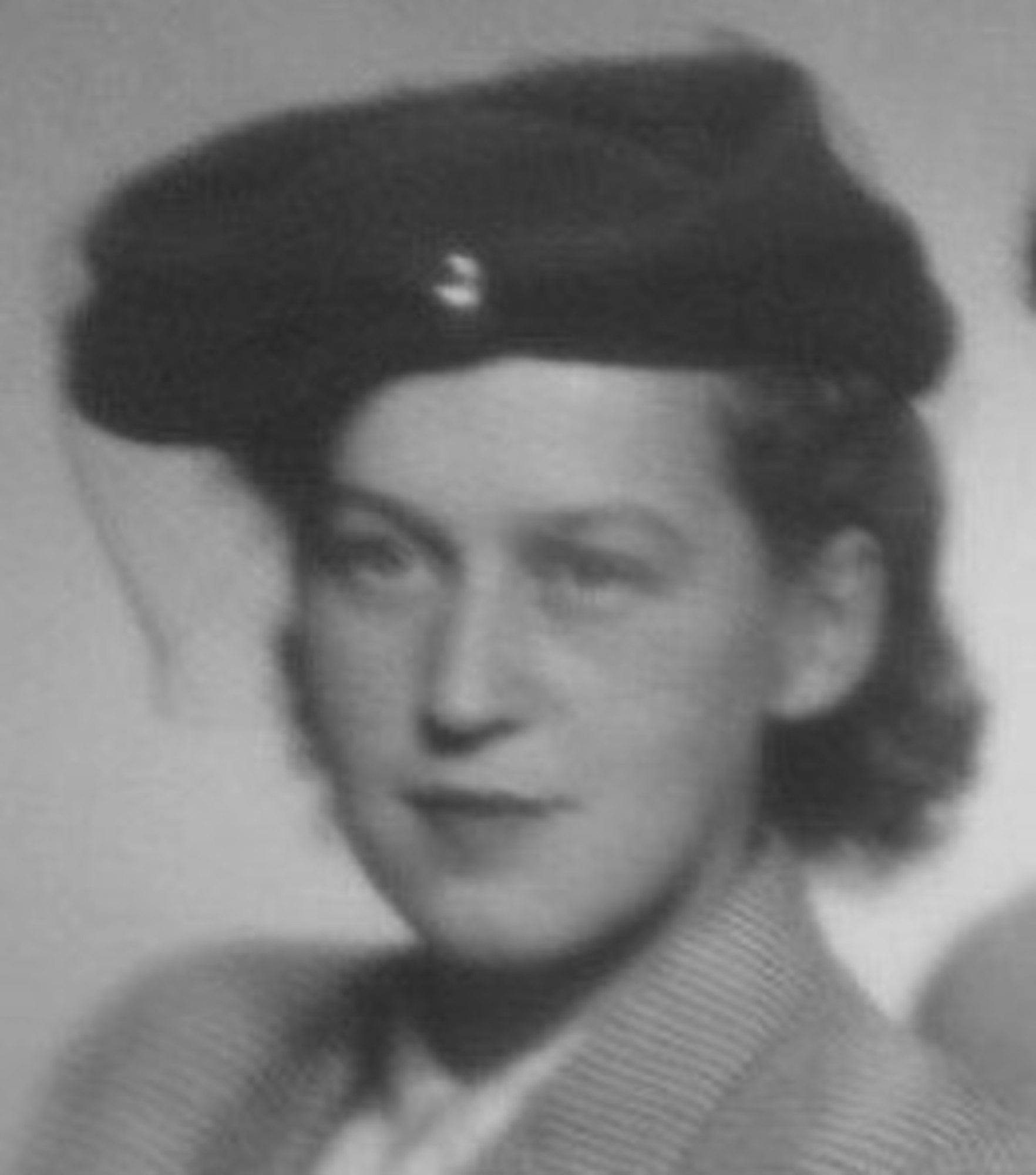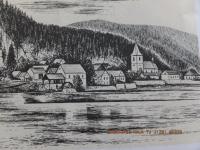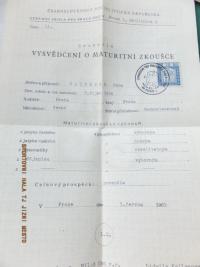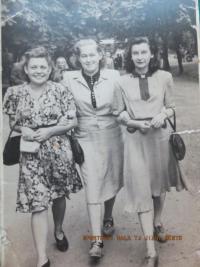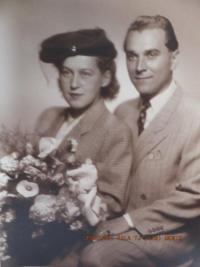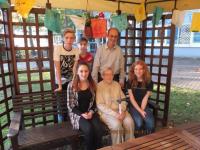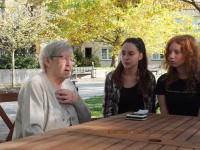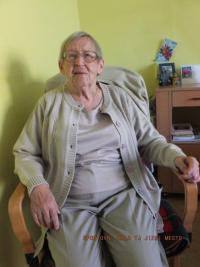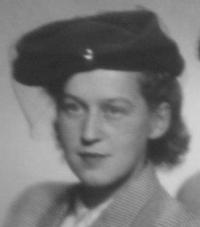As you could see I managed quite well on my own, to live that long.
Hana Opičková was born on 7 October, 1926 in Prague. Both her parents died in 1940, and as she had no siblings, she was left totally alone. She had to take care of herself during war and changed several jobs - worked in the railway, law firm and at the Electric Company. As a conductor she experienced the Prague Uprising, which she joined actively in the Prague district of Žižkov. After war she began working at the Czechoslovak State Film and met her future husband. The wedding took place in 1949. She was a member of the communist party for a short time, but after the February putsch she left it. She enjoys remembering the times and atmosphere of the Prague spring. She has been a widow for twenty years and lived in the retirement home.
